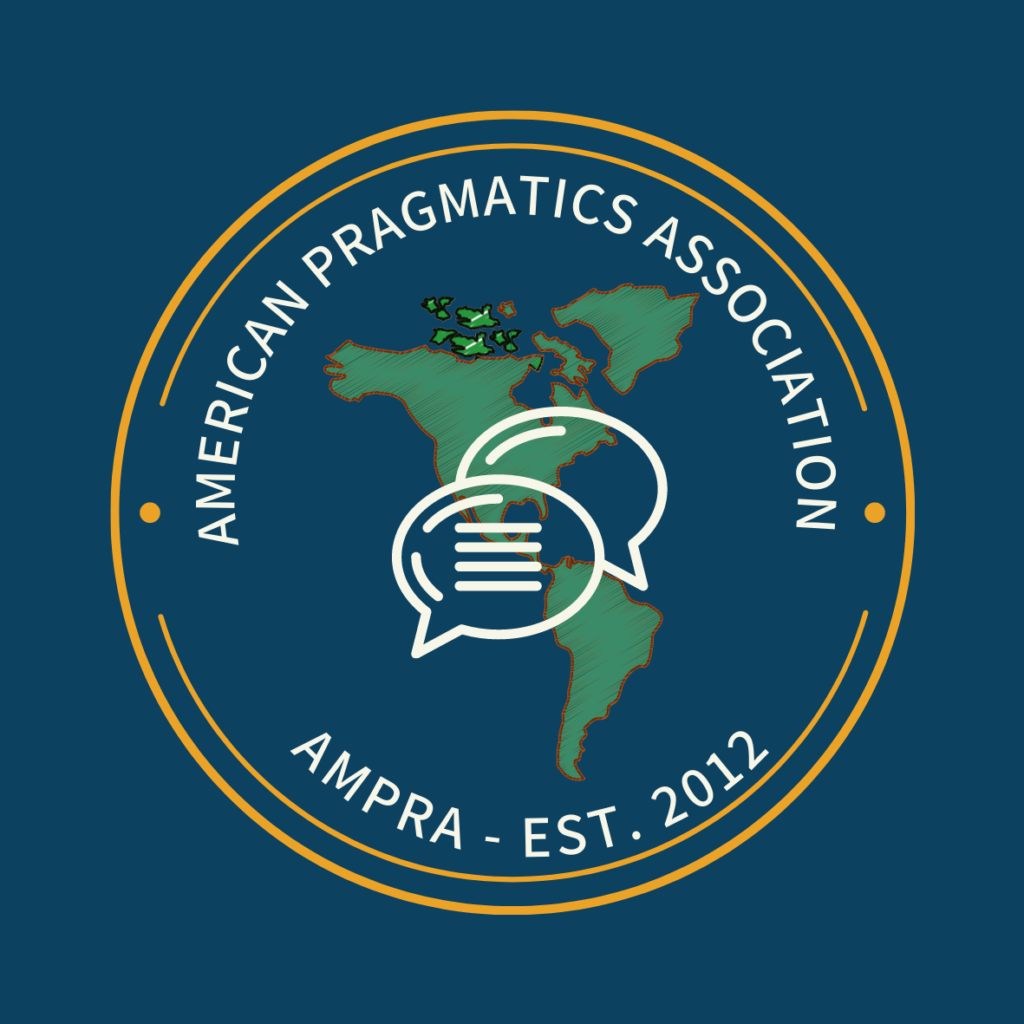The Association of American Pragmatics (known as AMPRA) was founded as a non-profit organization in 2012 by a group of scholars of pragmatics whose aim was to promote pragmatics research in the Americas, including North, Central and South America and the Caribbean. (For more details about the aims and purposes, see section 2 of the Bylaws that can be accessed from the ‘Statues’ sub-menu).
The primary means of promoting pragmatics is via the biennial AMPRA conference. There has been an AMPRA conference every two years since 2012, except for 2020, when the conference had to be cancelled due to Covid-19 travel restrictions.
The understanding of what is covered by the term ‘pragmatics’ has always been broad and inclusive, as can be seen from the wording on the conference CFPs. Typically, these CFPs call for papers falling in to one of four topical strands:
- Pragmatics theories: neo-Gricean approaches, relevance theory, theory of mind, meaning, role of context, common ground, semantics-pragmatics interface, speech act theory, presuppositions, grammaticalization, im/politeness, etc.
- Experimental pragmatics: models of language and meaning, experimental techniques, scalar implicatures, reference resolution, interpretation of figurative language, etc.
- Intercultural, cross-cultural and societal aspects of pragmatics: research involving more than one language and culture, or varieties of one language, intercultural pragmatics, interlanguage pragmatics, variational pragmatics, social pragmatics, lingua franca, computer-mediated communication (CMC), bilinguals’ and heritage speakers’ language use, language of aggression and conflict, etc.
- Applications: usage and corpus-based approaches, pragmatic competence, teachability and learnability of pragmatic skills, developmental pragmatics, forensic pragmatics, communication in medical, legal and other institutional settings, multimodal studies of talk-in-interaction, etc.
Our Sponsors
Our sponsors have generously donated money or promotional materials that have made our biennial conferences a success.





